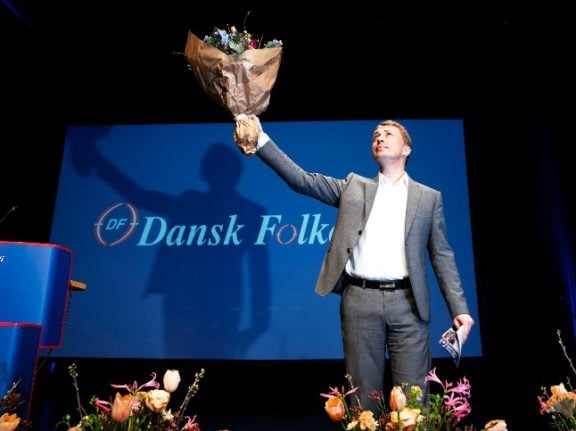Messerschmidt won 60 percent of the 825 votes, easily beating the two other candidates, Martin Henriksen and Merete Dea Larsen.
In a speech after the vote in Herning, the party’s Jutland heartland, Messerschmidt struck a conciliatory tone, saying he hoped to unite the struggling party.
“There will now come a time when we will make our party whole again, where we will gather our party together, and where there will be a place for everyone,” he said. “There will not be any repercussions for what has happened in the time that is now passed. Now we will look forward together.”
Messerschmidt was convicted in August of forging documents and defrauding EU funds. But the judge in the case has since been declared incompetent, meaning the case now needs to be heard in a district court, and perhaps later in Sweden’s high court.
In the run-up to the election, several Danish People’s Party MPs described the ongoing case as a serious hurdle for Messerschmidt’s candidacy.
The harsh conflict between the candidates led party founder Pia Kjærsgaard to describe the leadership contest as the worst she had seen since starting the party in 1995.
Henriksen, an anti-immigration firebrand who has been one of the party’s staunchest critics of Islam, has predicted that he will be sidelined under Messerschmidt. Several other MPs had openly aired their plans to leave the party if Messerschmidt was appointed leader.
During the campaign, Henriksen laid the blame for many of the party’s problems on his rival, who has been deputy leader since 2020.
“Over the last two to three years, everything has gone completely wrong, and this has happened at the same time as the [person occupying] the second-highest post in the party has changed,” he said.
Messerschmidt announced before the vote that he would make Peter Kofod, a 31-year-old MEP and former primary school teacher, his deputy if elected.
He campaigned on a pledge to form a coalition government with the centre-Right Liberal Party if the right-wing parties achieve a majority in the coming general election. He has also pledged to campaign for a referendum on Denmark’s membership of the European Union.



 Please whitelist us to continue reading.
Please whitelist us to continue reading.
Member comments